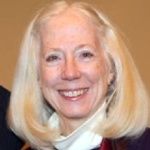非常抱歉,
你要访问的页面不存在,
非常抱歉,
你要访问的页面不存在,
非常抱歉,
你要访问的页面不存在,
验证码:

职称:Goodrich C. White Professor
所属学校:Emory University
所属院系:anthropology
所属专业:Anthropology
联系方式:404-727-5766
My current interests focus on sustainability in higher education as a tangible arena in which to understand and enact sustainable development more generally. Atlanta used to be one of America’s “most livable cities” but has today become a poster child for sprawl and unsustainable growth. Like many US cities, Atlanta struggles to achieve clean air and water, affordable housing, good public transportation, and a way of life that supports a flourishing society while recognizing the earth’s finite living systems of which we are a part.2013CoverforWeb Sustainability—what Aldo Leopold called a land ethic—is a complex paradigm shift emerging in many parts of the world, envisioning a different future for agrarian and industrial society. Sustainable approaches work to reverse damage to biological life support systems, to ensure food security and healthy livelihoods, to increase social equity and expand participation in decision-making. I particularly enjoy the ways that, sometimes quite invisibly, today’s sustainability movement builds on anthropological research. Over several generations, anthropologists have documented viable lifeways in human history and around the world, offering tangible alternatives to present practices. Emory University has now made sustainability a core commitment, and I work with the Office of Sustainability Initiatives to bring that vision to reality. As Faculty Liaison, my responsibilities are mainly curriculum innovation—including the Piedmont Project faculty development program—and the Sustainable Food Initiative. My research is connected to this work, as we learn what kinds of experiences change individuals and what kinds of policies and practices support institutional transformation as well.
My current interests focus on sustainability in higher education as a tangible arena in which to understand and enact sustainable development more generally. Atlanta used to be one of America’s “most livable cities” but has today become a poster child for sprawl and unsustainable growth. Like many US cities, Atlanta struggles to achieve clean air and water, affordable housing, good public transportation, and a way of life that supports a flourishing society while recognizing the earth’s finite living systems of which we are a part.2013CoverforWeb Sustainability—what Aldo Leopold called a land ethic—is a complex paradigm shift emerging in many parts of the world, envisioning a different future for agrarian and industrial society. Sustainable approaches work to reverse damage to biological life support systems, to ensure food security and healthy livelihoods, to increase social equity and expand participation in decision-making. I particularly enjoy the ways that, sometimes quite invisibly, today’s sustainability movement builds on anthropological research. Over several generations, anthropologists have documented viable lifeways in human history and around the world, offering tangible alternatives to present practices. Emory University has now made sustainability a core commitment, and I work with the Office of Sustainability Initiatives to bring that vision to reality. As Faculty Liaison, my responsibilities are mainly curriculum innovation—including the Piedmont Project faculty development program—and the Sustainable Food Initiative. My research is connected to this work, as we learn what kinds of experiences change individuals and what kinds of policies and practices support institutional transformation as well.